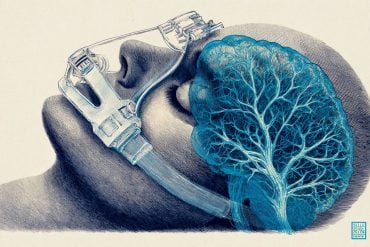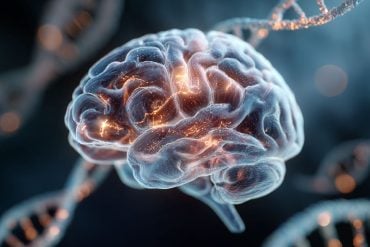Summary: A new study highlights the lasting impact of postpartum maternal depression and mother-to-infant bonding on children’s emotional and behavioral outcomes. Researchers found that early bonding can partially offset the negative effects of maternal depression, reducing future psychosocial difficulties.
Among 245 mother–child pairs, maternal depression significantly predicted challenges in sixth-grade children, but strong early bonding mediated nearly 35% of that impact. These findings support the importance of early interventions aimed at strengthening bonding in mothers experiencing postpartum depression.
Key Facts:
- Mediating Role of Bonding: Mother-to-infant bonding accounted for 34.6% of the link between postpartum depression and child difficulties.
- Long-Term Effects: Children whose mothers had postpartum depression showed higher emotional and behavioral challenges in sixth grade.
- Sex Differences: Boys experienced more psychosocial difficulties than girls, especially in conduct and attention areas.
Source: Shinshu University
Postpartum maternal mental health and mother-to-infant bonding are well-established as critical factors in a child’s psychosocial development.
However, few studies have explored the combined impact of postpartum maternal depression and early bonding experiences on emotional and behavioral difficulties during middle childhood.
A new study reveals significant associations between postpartum depression, mother-to-infant bonding, and child difficulties.
Notably, secure early bonding was found to partially buffer the long-term effects of postpartum depression on child outcomes.
The development and well-being of a child are shaped by various factors, among which maternal mental health and mother-to-infant bonding play a significant role in social and emotional development. Infants of mothers with postpartum depression often exhibit erratic temperaments and delayed cognitive development.
Moreover, maternal depression can hinder the bonding process, increasing the risk of insecure attachment and subsequent developmental challenges.
While the short-term effects of postpartum depression on early child development and bonding are well-documented, less is known about how maternal depression and bonding difficulties jointly influence behavioral and psychosocial outcomes in middle childhood.
To address this gap, a research team led by Associate Professor Daimei Sasayama from the Department of Psychiatry in collaboration with Professor Hideo Honda from the Department of Child and Adolescent Developmental Psychiatry, Shinshu University School of Medicine, Japan, investigated the relationship between postpartum maternal depression and mother-to-infant bonding and their combined impact on children’s emotional and behavioral difficulties in sixth grade.
The study hypothesized that mother-to-infant bonding can mediate the long-term impacts of maternal depression on child mental health outcomes.
Their findings were published online in the journal Archives of Women’s Mental Health on April 15, 2025.
The study included 245 mother–child pairs from Okaya, Japan, with children born between April 2, 2009, and April 1, 2012.
The team used the Edinburgh Postnatal Depression Scale (EPDS) and the Mother-to-Infant Bonding Scale-Japanese version (MIBS-J) to evaluate maternal depressive symptoms and bonding, respectively.
Additionally, they measured child difficulties using the Japanese version of the Strengths and Difficulties Questionnaire (SDQ). The EPDS and MIBS-J data were collected from mothers approximately 2 weeks to 1 month postpartum during postnatal health checkups.
Whereas the self- and parent-rated SDQ data were gathered from their sixth-grade children and their caregivers. Among the caregivers who completed the parent-rated SDQs, 92.2% were mothers, 7.3% were fathers, and one person was another caregiver.
Based on the collected data, 17.1% of mothers exhibited postpartum depressive symptoms, which aligned with the national prevalence rates in Japan. These symptoms showed both direct and indirect associations with mother-to-infant bonding and child difficulties.
“Interestingly, it was found that mother-to-infant bonding mediated 34.6% of the effects of postpartum maternal depression on child difficulties, which confirmed the study’s hypothesis,” explains Dr. Sasayama.
“Apart from these factors, the child’s sex was a significant predictor of psychosocial difficulties, with boys showing higher total difficulty scores than girls, particularly in conduct and hyperactivity or inattention.”
However, both rating sources indicated greater difficulties among children whose mothers had postpartum depressive symptoms. These findings highlight the lasting impact of early bonding experiences between mother and child and their children’s future psychosocial growth.
This further emphasizes the need for early interventions targeting bonding in the context of maternal postpartum depression in order to promote healthy child outcomes.
“Our findings help deepen our understanding of how early attachment experiences mediate the long-term impact of maternal mental health on children’s emotional and behavioral outcomes.
“Future research should prioritize developing interventions that enhance postpartum mother-to-infant bonding as an approach to mitigate long-term psychosocial difficulties in children,” adds Dr. Sasayama.
Future studies should also explore which specific depressive symptoms most affect bonding in larger sample populations and should include genetic data, socioeconomic factors, and other underlying mechanisms in shaping these associations to design targeted interventions to support affected mothers and their families.
About this neurodevelopment and PPD research news
Author: Chinatsu Anthoine
Source: Shinshu University
Contact: Chinatsu Anthoine – Shinshu University
Image: The image is credited to Neuroscience News
Original Research: Open access.
“Postpartum maternal depression, mother-to-infant bonding, and their association with child difficulties in sixth grade” by Daimei Sasayama et al. Archives of Women’s Mental Health
Abstract
Postpartum maternal depression, mother-to-infant bonding, and their association with child difficulties in sixth grade
Purpose
Postpartum maternal mental health plays a crucial role in the development of children’s social and emotional competencies. This study aimed to investigate the influence of postpartum maternal depression and mother-to-infant bonding on children’s emotional and behavioral difficulties in sixth grade.
Methods
Data from the maternal Edinburgh Postnatal Depression Scale (EPDS) and the Mother-to-Infant Bonding Scale-Japanese version (MIBS-J), administered to mothers approximately 2 weeks to 1 month postpartum during postnatal health checkups in Okaya, Japan, were analyzed alongside Strengths and Difficulties Questionnaire (SDQ) data collected from their sixth-grade children and their caregivers. The study included 245 mother–child pairs of children born between April 2, 2009, and April 1, 2012.
Results
Postpartum maternal depressive symptoms, as assessed by the EPDS, were significantly associated with mother-to-infant bonding difficulties, as assessed by the MIBS-J. Structural equation modeling revealed that EPDS, MIBS-J, and sex significantly predicted psychosocial difficulties of children.
Bonding difficulties mediated 34.6% of the total effect of EPDS on child difficulties. The models explained 26.1% of the variance in psychosocial difficulties, with 43.0% of the variance explained for parent-rated SDQ scores and 36.4% for self-rated SDQ scores.
Conclusions
The negative impact of maternal depressive symptoms on mother-to-infant bonding may have contributed to increased difficulties for the child, highlighting the critical role of bonding in moderating the effects of maternal mental health on child development.
These findings underscore the importance of early postpartum interventions targeting both maternal depression and bonding difficulties to mitigate long-term effects on child development.







